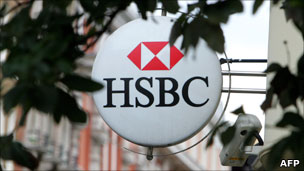JERUSALEM: East Mediterranean Gas (EMG), which supplies Egyptian natural gas to Israel and other Middle East countries, will not agree to amend the terms of its contract with Israel, an EMG stakeholder said on Monday.
Egyptian Petroleum Minister Abdullah Ghorab on Sunday was quoted by the MENA news agency saying talks were under way to adjust gas contracts — especially Israel — to receive a higher price. He said media campaigns and public disapproval of gas exports were sufficient basis for negotiating greater benefits to Egypt.
But Nimrod Novik, senior vice president of Merhav, a founding partner of EMG, told Reuters: "Our contract was amended in 2009 and it has built into it the precise mechanism, schedule, criteria and procedure for price negotiations and they do not exist at the moment."
"We expect both sides to respect … this contract."
Merhav is owned by Israeli businessman Yosef Maiman, who also holds 60 percent of Ampal-American Israel Corp. Merhav, Ampal and Maiman own 25 percent of EMG.
Egyptian businessman Hussain Salem, Egypt Natural Gas Co, Thailand’s PTT, and American businessman Sam Zell also own stakes in EMG.
Novik said he could not elaborate as to the terms of price renegotiation. He also declined to say exactly how much Israel pays for Egyptian gas but that it was above $3 per million BTUs.
The Egyptian press have accused the EMG consortium, which supplies 45 percent of the gas needs of Israel’s electric utility, of selling its gas to Israel at below market prices.
"Reports in the Egyptian press have been erroneous for years," Novik said. "When they quoted the original price was 75 cents it was more than double and when they published it is $1.50, in reality it is more than double."
Israel signed a deal to export natural gas from Egypt a decade ago for as much as 30 years and the contract was amended in 2009 to extract a higher price.
"What EMG (Israel) pays for Egyptian gas is higher than for other Egyptian gas exports — whether it is through a pipeline to Jordan, Syria and Lebanon or through LNG (liquefied natural gas)," Novik said.
Israeli gas
Gas supply from Egypt resumed last week after the pipeline carrying it across the Sinai Peninsula was damaged in an explosion and fire on Feb. 5.
Novik said supplies had reached "contractual quantities."
Israel gets most of its gas needs from the Yam Thetis group, which found natural gas off the country’s Mediterranean coast. Newly discovered gas offshore at the Tamar site, slated to come online in a few years, and the larger Leviathan prospect have some believing Israel should stop Egyptian gas imports.
Egypt and Israel signed a peace treaty in 1979 but relations between the two sides have been cool for most of that time.
"The Israeli energy market needs more than one source for supply reliability," Novik said.
He pointed to the shutdown of the Egypt pipeline and many occasions where Yam Thetis was forced to close down and EMG stepped in to supply Yam Thetis’ customers.
Novik also rejected the notion that disruptions from Egypt were more likely due to attacks on the pipeline. He said it was also true about Israeli sites.
"Any energy installation is vulnerable to terror attacks," Novik said, adding EMG had bolstered security.
He said EMG expected to continue signing deals with Israeli customers, adding natural gas use was growing rapidly in Israel.
The Israeli market absorbed 5 billion cubic meters of natural gas in 2010 and this is expected to triple in the next five years, Novik said.
"New projects are announced daily," he said. "It’s not just electricity. Industry is also converting to cheaper and cleaner natural gas."


